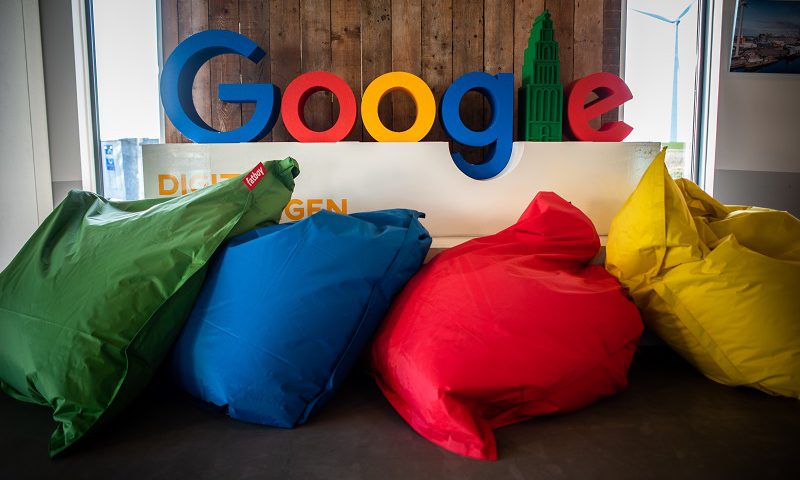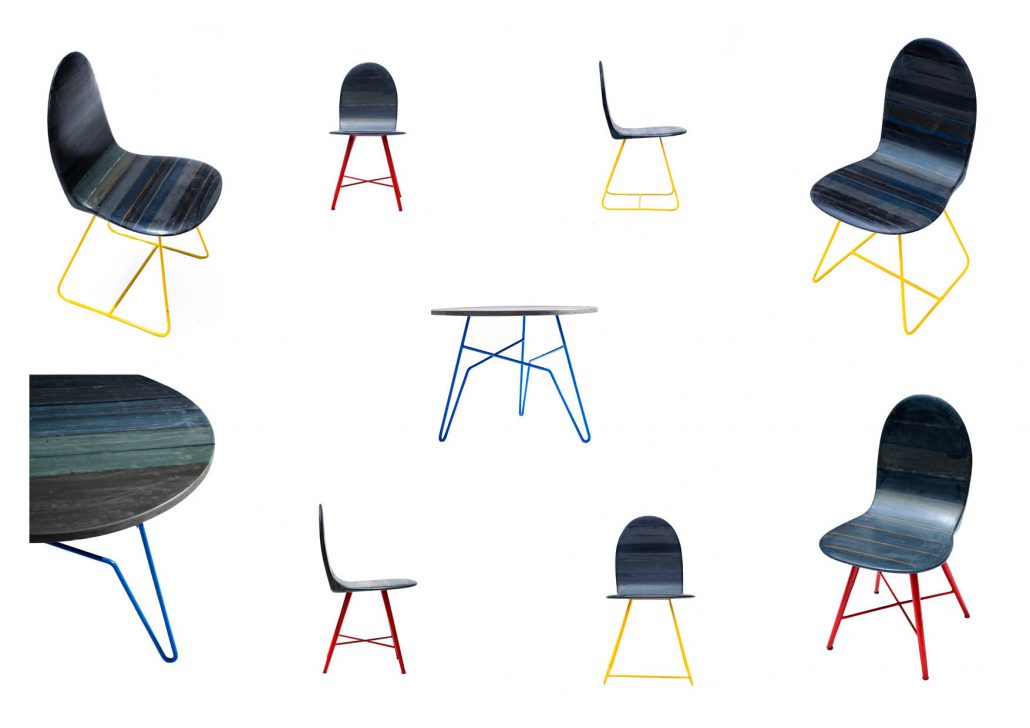Furniture from ships’ waste adorns Google Eemshaven’s office
Furniture from ships’ waste adorns Google Eemshaven’s office

This year, Eemshaven and Delfzijl established a notable collaborative effort in the sustainable reuse of waste plastic. The multinationals Bek & Verburg, Impact Recycling and Dunia Design have joined forces with Groningen Seaports to turn waste plastic into stylish furniture.
Each party has its own role to play. The logistics operative Bek & Verburg, in collaboration with Groningen Seaports, collects waste in Eemshaven and the port of Delfzijl. Impact Recycling processes these waste plastics into 98 percent pure granulate, which is suitable for consumer products. Start-up Dunia Design then turns this into stylish designer furniture. Impact Recycling converts the residual flows of these plastics into sustainable building materials.
Production replaces incineration
David Walsh, CEO of Impact Recycling: “We are delighted to be part of this innovation with Dunia Design, where we produce design furniture made of plastic that would otherwise end up in a landfill or be incinerated.” The parties see the circular cluster of Eemshaven and Delfzijl as an important link and branch location for their activities. Their mission is to make locally produced furniture out of local waste using as much recycled plastic as possible from the Groningen seaports and the Wadden Sea World Heritage Site.
Furniture a good fit for Google
Google is the first exclusive buyer of furniture made from Eemshaven’s port waste plastic. Furniture made from local waste plastics aligns perfectly with Google’s sustainability policy. Google sees a good match between the ambitions of the project and its own sustainability objectives. It also fits in well with Google’s policy to make a positive contribution to the region in which it is located. The furniture has been placed in the offices of its new data centre complex in Eemshaven, where Google is currently working on the expansion of its data centre.
Alexis Cronin, CEO of Dunia Design: “As a design company specialising in plastic waste and its potential, we’re very enthusiastic about working with such a dynamic and progressive company as Google. We’re looking forward to the design opportunities and the impact this could have on our company.”

Photo: Dunia Design
Waste collector as producer of raw materials
Kenny Baas, Business Development Manager of Bek & Verburg, always wants to go one step further with his maritime waste collection company. “Not only do we collect waste, we also produce raw materials. We share a single common goal with all parties involved in this project: to clean up the sea and return the materials we collect to the circular circuit. We’re also working with the same parties on a project to recycle old fishing nets into raw material for new plastic products. We plan to open our test facility for that in the first half of 2021.”
Circular cluster
The disaster with MSC Zoë in the Wadden Sea World Heritage Site was an important reason for Groningen Seaports to promote and continue to facilitate projects aimed at reducing plastics in the sea. Processing waste plastics is one of its spearheads. Initiator of the project, Heleen van Wijk van Groningen Seaports, is pleased to see the launch of the project. “The delivery of the first furniture is a new milestone for us in the circular cluster that we are supporting as a seaport. Connecting the various innovative technologies and achieving results such as these is something we’re happy to commit ourselves to.”
Testing in port of Delfzijl
Next year, the consortium will see the addition of start-up Noria, which will be testing its innovative machinery for removing plastic soup from the water in the port of Delfzijl. These plastics will also be processed in the production line of the project partners. The parties expect to market hundreds of circular furniture items in the coming years, thus contributing to a circular world.

